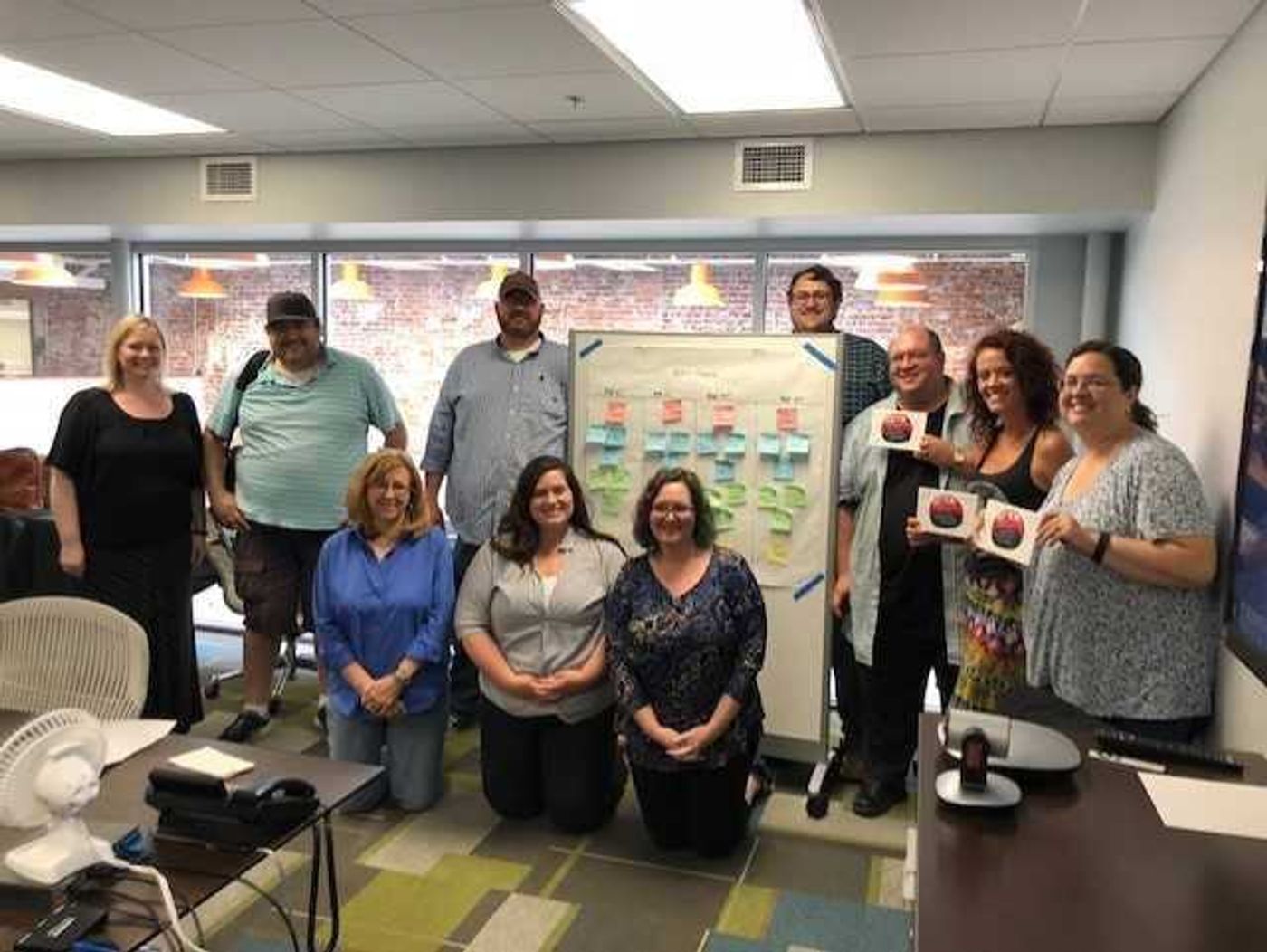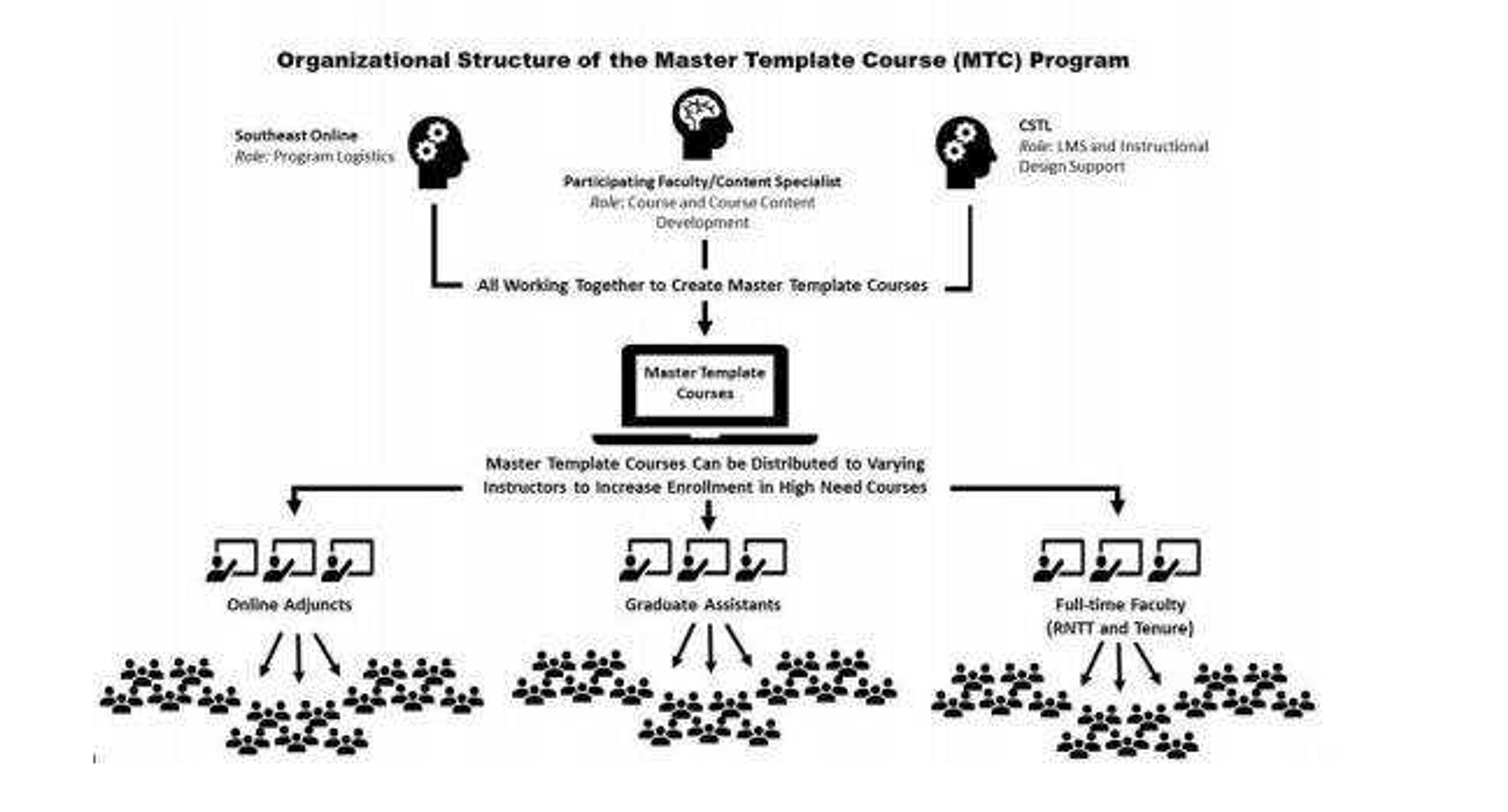The master template program is making waves at Southeast in the psychology and business administration departments, having both supporters and detractors to the structured, team-based approach to expand online courses.
The master templated courses are created on a volunteer basis by faculty in departments or programs that have a high demand for classes, Director of Southeast Online Programs Chelsea McNeely said.
“They were in a situation where they were admitting and enrolling more students than they could accommodate,” McNeely said of the psychology and business administration departments. “And we were getting to the point where students were being admitted, and we couldn't even give them a schedule because there were no classes available. Our hands felt tied. It was just it was a really bad situation for all of us to be in.”
McNeely designed master templates studio for the university after first researching what other schools such as Penn State University were doing with master template courses.
“We went to conferences, and when we were there, we would check in with institutions and say, ‘Well, how are you addressing that?’ And this notion of master templates kept coming up,” McNeely said.
The initial template building process involves the team-based aspect of the program. McNeely said the team consists of a faculty member, or content specialist, someone from the Center for Scholarship in Teaching and Learning, and someone from Southeast Online to handle logistics.
“They develop the template and then the template can be used by part-time faculty, by graduate assistants who are teaching or also by full-time faculty,” McNeely said. “They develop the template and then the template can be used by part-time faculty, by graduate assistants who are teaching or also by full-time faculty,”
Years prior to master templates being introduced to Southeast, McNeely said the university would purchase the co-copyright of courses through a “pretty informal contract with faculty where they would sign over co-ownership of their course.”
The reason for this, McNeely said, was to ensure that if a faculty member were to leave the university or there was a need to add more sections to a course it could be done with the same consistency in which the course was made.
“And even if that faculty member would leave the institution or even if we need to add three or four more sections of this class and get different teachers to come teach it, we would know that at least students were receiving the same level of quality because one of our own faculty had said, ‘This course is quality,’” McNeely said.
The master templates had a cohort of eight professors in the psychology and business administration departments because those were the two programs that needed immediate attention, McNeely said.

The program, McNeely said, was piloted last summer. She anticipates it will be fully implemented soon.
“The program was proven successful, so we are technically out of pilot phase and we're willing to expand it out now to the rest of the institution,” she said.
McNeely said the master template is just that: a template designed for customization. The goal is to build a structured template with some room for personality.
“We try to keep it at about 80 percent completion,” McNeely said. “And that extra 20 percent allows whoever picks up that template to insert their own experiences and perspectives and personality into the course.”
The creation of master template courses were a hot-button topic at the first Faculty Senate meeting of the spring semester Jan. 23. The primary concern of some faculty members seemed to be course ownership.
Associate professor of management Erin Rae Fluegge was one of eight professors who participated in the summer cohort and customized her own master template course MG470 (Leadership and Management).
“It is a required course for our management majors, and there’s a lot of other students across campus that take it,” Rae Fluegge said after the Jan. 23 Faculty Senate meeting. “There’s always been a waitlist for this course and there’s only one of me. This provided an opportunity in my situation to help our department, to help our students, to help our college to push through that waitlist and get more people through that class.”
Rae Fluegge said she was able to speak with her department chair, Kevin Dickson, about who taught the other sections of her course. Rae Fluegge was even able to suggest former students of hers who had taken her management courses now instructors.
“They know my teaching style, they would feel free to contact me with any questions about it,” Rae Fluegge said. “So to me this is a nice way to get their feet wet.”
Professor of biology Diane Wood was not a participant in the summer cohort, but was active in the discussion about master templates at Faculty Senate. She believes by hiring part-time adjuncts, the university is hiring cheap labor to make profit “and in essence, what we’re doing is we’re contributing to the working poor.”
“We at SEMO are better than that, or we should be better than that,” Wood said. “If we really want to represent the values of this region and the people that come to our school and work at the school, then we need to think about what we do.”





